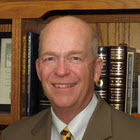
All week long I’ve laid out my belief that racial disparity in traffic stops and in the outcome of those stops is being driven primarily by racial disparity in income, and to a lesser extent by police deployment practices — not, by and large, racial prejudice by the police. While my own analysis of the data convinces me of this, I also believe that racial bias accounts for some of the disparity — albeit only a fraction.
I believe this because I have seen it on occasion in Lincoln. I think in Lincoln, at least, it is almost always the result of an unintended or even subconscious bias, but it is real nonetheless. I’ve described some of my observations on this previously.
The last small increment is what I’m most interested in learning about and impacting as public safety director. We will not tolerate racist police officers in Lincoln. We go to great length to weed out anyone with racist attitudes during the selection process — including a polygraph exam that explores this. We also have done mandatory training on cultural sensitivity, cultural awareness, and racial profiling for years. If racist police officers were the cause of disparity in traffic stops, you’d think it would be going down over the years, but it isn’t.
Much of what I’ve seen, however, has not been the acting out of racist tendencies, but rather the failure to think about how well-intentioned activities can have a racially disparate impact that is unjustified and unfair. I want our police department and our officers to understand how practices they may engage in can have a disparate impact that is unjustified, and what they can do to avoid this unfairness.
As our ability to target resources to areas most affected by crime and disorder improves, we must be cautious to make sure our efforts are viewed as legitimate by the citizens who live in those areas. We should avoid policing tactics that can damage our relationships while returning little in terms of actually reducing crime and disorder. Strategies that emphasize collaboration, early intervention, problem-solving and prevention should continue to be a focus.
An example: perhaps an officer has gleaned from her experience that there is a greater likelihood that drivers of an older sedan will be suspended, or have a warrant, than drivers of late-model minivans or SUVs. As a result, she focuses much of her attention of the former, and not so much on the latter, because she believes this strategy will result in more higher-value arrests, rather than just traffic tickets. If there is racial disparity in the drivers of these two broad vehicle categories, her practice will result in racial disparity in her stops and arrests, as well. It’s a vehicle profiling, not racial profiling, but the result is the same: disparity, and disparity without much justification. Avoiding this is easy: spread your effort around, and don’t fixate on older sedans. Plenty of SUV and minivan drivers are texting while driving, speeding, and pushing the envelope on red lights, too.
I also want individual police officers to understand what they can do to minimize the perception of racial profiling among minority citizens during traffic stops. Perception is everything, and there is no denying that the perception by African American citizens that the police engage in racial profiling is quite high. You will not convince people otherwise with data: you will only convince them with your actions.
Those actions are not complex. It is really quite simple, and it is what I teach: Introduce yourself. Tell motorists why you stopped them. Be polite. Explain things calmly and thoroughly. Answer any questions. Be fair. Leave the motorist with your name and employee number on a ticket, a warning, or a business card. And above all, make sure your stops are always supported by probable cause or reasonable suspicion.
Links to the series:
Sunday
Monday
Tuesday
Wednesday
Thursday
Friday
Visit Director Casady’s blog.